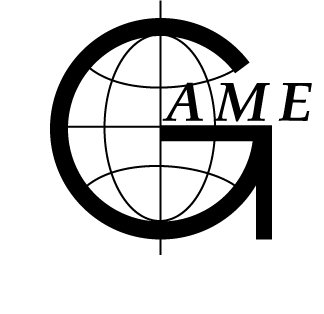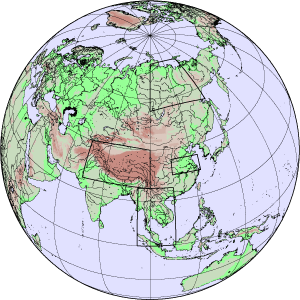|
GAME
Internatinal
Science Panel GISP |
 |
 |
Kenji Nakamura
GAME International Project Office,
Hydrospheric Atmospheric Research Center, Nagoya University
The eighth GEWEX Asian Monsoon Experiment (GAME)
International Science Panel (GISP) Meeting was held in Khon Kaen,
Thailand for 10-11 November 2003 with the kind auspices of the National
Research Council of Thailand (NRCT). 31 participants from 10 countries
joined.
The meeting was opened with addresses by GISP chairperson, Prof. T. Yasunari and Deputy Secretary General of NRCT, Mr. Chobvit Lubpairee. Prof. Yasunari clearly mentioned the main subject of this GISP meeting, that is, the way to extend the GAME results. The first session was on "GAME and its international link", and relationships with WCRP, GEWEX, GHP, etc. were presented by Prof. T. Yasunari. The Coordinated Enhanced Observing Period (CEOP) and CEOP Asia-Australia Monsoon Project (CAMP) were described by Prof. T. Koike. The global interest in the water cycle issue appeared in such as World Summit of Sustainable Development in 2002 and Earth Observation Summit in 2003 was emphasized. Following session was dedicated for working group reports: Land surface process, radiation, WRAP, precipitation system study, monsoon system modeling, GAME-Siberia, WEBS, GAIN, etc.. In addition, the TRMM re-entry issue was presented. The 3rd session was on "Related projects and wrap up of GAME". There, each country (Korea, Nepal, Myanmar, China, Vietnam, Mongolia, Thailand and Laos) presented domestic projects, such as KEOP in Korea. As one of the important international initiatives relevant to the global water cycle researches, Integrated Global Observing Strategy-Partners (IGOS-P) water theme was presented. These are strong signs that the water cycle has become one of the biggest issues both globally and locally.
Next day, the GAME wrap up and GAME follow-on were discussed. The GAME will be finished in 2004. How to utilize fully the GAME data, and how to extend the GAME heritage? The first question was what GAME really accomplished. The field observations were very successfully conducted, and the understanding of the land-atmosphere interaction processes was much progressed. The synthesis and cross-cutting issues and the modeling issue were recognized when the GAME Phase II was proposed. We recognized that those issues have partly been dealt with according to the presentations. However, the prediction of the Asian monsoon variation has not yet been achieved. The prediction requires full understanding of the mechanism of the Asian monsoon variation, and the prediction is crucial for the long-term water management, which is one of the goals of GAME. Thus, we agreed that we need a follow-on program of GAME. On the other hand, we also recognized that one of the major achievements of GAME is the successful international collaborations. Water cycle is partly global and partly very local, and local researches are very essential, and the local research collaborations are crucial. These researches will also contribute to the prediction of local water cycles. Thus, the GAME follow-on program should put emphasis on the modeling and prediction with strong international collaborations. Since the prediction activities is one of the businesses of operational organizations/agencies, the involvements of the hydro-meteorological operational organizations/agencies were highly appreciated. Thus, it was adopted that the follow-on program on the Asian water cycle study will be proposed as a new sub-program at the next GEWEX SSG in January 2004 in Morocco. The follow-on program is briefly as:
A working group for the implementation of the follow-on program was proposed and adopted.
The last business of GISP was the closure of GAME. The wrap up conference and the last GISP meeting in 2004 in Kyoto, Japan were proposed and adopted. Special issues of suitable international journals and an article in BAM were recommended. Finally, letters to JAXA and NASA on the TRMM re-entry issue were proposed and adopted. The letters request to maintain the TRMM observation as long as long as possible.
nce.The meeting was opened with addresses by GISP chairperson, Prof. T. Yasunari and Deputy Secretary General of NRCT, Mr. Chobvit Lubpairee. Prof. Yasunari clearly mentioned the main subject of this GISP meeting, that is, the way to extend the GAME results. The first session was on "GAME and its international link", and relationships with WCRP, GEWEX, GHP, etc. were presented by Prof. T. Yasunari. The Coordinated Enhanced Observing Period (CEOP) and CEOP Asia-Australia Monsoon Project (CAMP) were described by Prof. T. Koike. The global interest in the water cycle issue appeared in such as World Summit of Sustainable Development in 2002 and Earth Observation Summit in 2003 was emphasized. Following session was dedicated for working group reports: Land surface process, radiation, WRAP, precipitation system study, monsoon system modeling, GAME-Siberia, WEBS, GAIN, etc.. In addition, the TRMM re-entry issue was presented. The 3rd session was on "Related projects and wrap up of GAME". There, each country (Korea, Nepal, Myanmar, China, Vietnam, Mongolia, Thailand and Laos) presented domestic projects, such as KEOP in Korea. As one of the important international initiatives relevant to the global water cycle researches, Integrated Global Observing Strategy-Partners (IGOS-P) water theme was presented. These are strong signs that the water cycle has become one of the biggest issues both globally and locally.
Next day, the GAME wrap up and GAME follow-on were discussed. The GAME will be finished in 2004. How to utilize fully the GAME data, and how to extend the GAME heritage? The first question was what GAME really accomplished. The field observations were very successfully conducted, and the understanding of the land-atmosphere interaction processes was much progressed. The synthesis and cross-cutting issues and the modeling issue were recognized when the GAME Phase II was proposed. We recognized that those issues have partly been dealt with according to the presentations. However, the prediction of the Asian monsoon variation has not yet been achieved. The prediction requires full understanding of the mechanism of the Asian monsoon variation, and the prediction is crucial for the long-term water management, which is one of the goals of GAME. Thus, we agreed that we need a follow-on program of GAME. On the other hand, we also recognized that one of the major achievements of GAME is the successful international collaborations. Water cycle is partly global and partly very local, and local researches are very essential, and the local research collaborations are crucial. These researches will also contribute to the prediction of local water cycles. Thus, the GAME follow-on program should put emphasis on the modeling and prediction with strong international collaborations. Since the prediction activities is one of the businesses of operational organizations/agencies, the involvements of the hydro-meteorological operational organizations/agencies were highly appreciated. Thus, it was adopted that the follow-on program on the Asian water cycle study will be proposed as a new sub-program at the next GEWEX SSG in January 2004 in Morocco. The follow-on program is briefly as:
1) a
program for the understanding the water and energy cycle in Asia with,
2) focus on prediction based on the deep understanding of the Asian monsoon variations,
3) with involvements of the international collaborations not only with research communities but also the operational agencies,
4) including not only hydro-meteorology but also energy exchange studies like radiation,
2) focus on prediction based on the deep understanding of the Asian monsoon variations,
3) with involvements of the international collaborations not only with research communities but also the operational agencies,
4) including not only hydro-meteorology but also energy exchange studies like radiation,
A working group for the implementation of the follow-on program was proposed and adopted.
The last business of GISP was the closure of GAME. The wrap up conference and the last GISP meeting in 2004 in Kyoto, Japan were proposed and adopted. Special issues of suitable international journals and an article in BAM were recommended. Finally, letters to JAXA and NASA on the TRMM re-entry issue were proposed and adopted. The letters request to maintain the TRMM observation as long as long as possible.